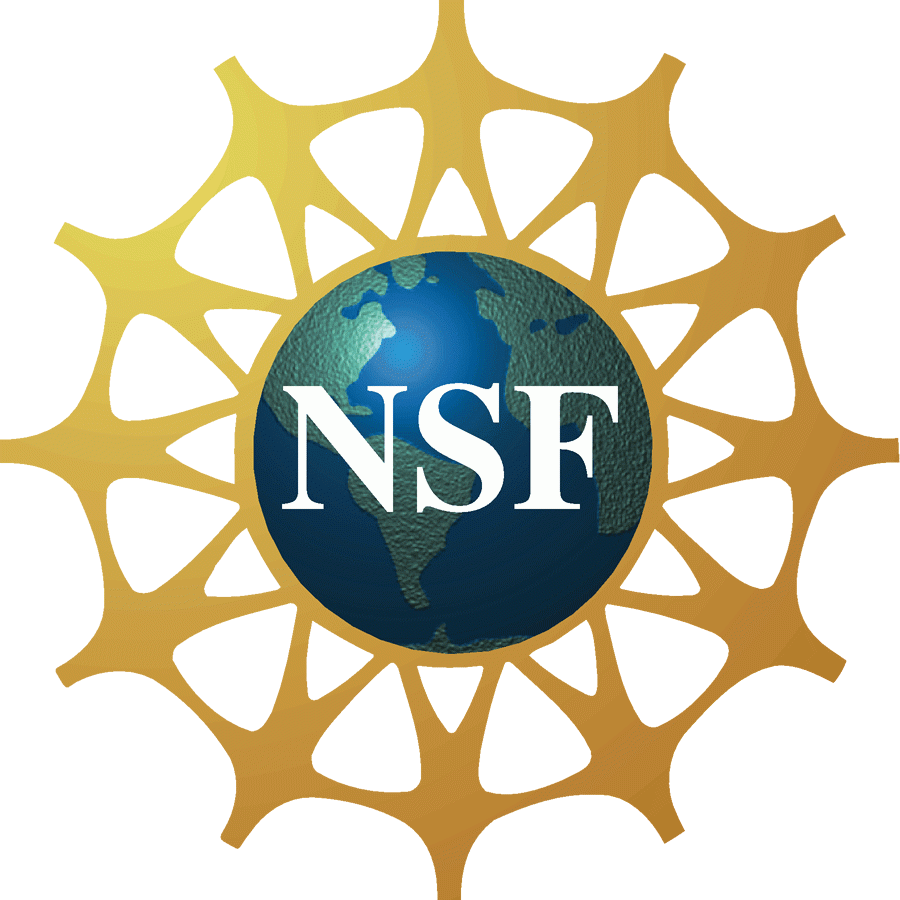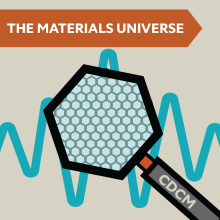Center for Dynamics and Control of Materials: an NSF MRSEC
The Center for Dynamics and Control of Materials: an NSF MRSEC brings together researchers from across science and engineering to create materials with new atomic-scale structures and functionalities, and to develop approaches for actively controlling and reconfiguring materials in real time. These materials will enable the development of new and improved technologies in areas such as sustainable energy, quantum information processing, bioinspired systems, and semiconductors for telecommunications, computing, and sensing. The Center consists of two Interdisciplinary Research Groups (IRGs). IRG 1 focuses on the design and creation of soft materials, based on nanoparticle and biopolymer networks, whose structure and functionality can be actively controlled by the introduction of chemical fuels or other forms of energy. These new, highly adaptive materials will have the potential to be used in applications ranging from optical coatings for temperature control to artificial cellular materials. IRG 2 addresses new properties and functions enabled by the engineering of structure and symmetry in atomically thin and molecular materials. Such materials will offer compelling opportunities to develop new capabilities for electronics, photonics, and quantum devices and systems. These research activities are closely integrated with initiatives in education, outreach, and the promotion of broad participation and inclusion. The Center engages elementary school teachers in materials research to improve teacher efficacy and student engagement with science at a formative age, and thereby increase the number and breadth of students interested in science, engineering, and related fields. A materials podcast, community college and Hispanic-serving institution partnerships, and mentoring programs foster broad participation and success in materials-related education and careers. The Center supports two IRGs:
IRG 1, Fuel-Driven Pluripotent Materials will design and realize pluripotent materials – materials whose morphology and functionality can be actively controlled via suitable environmental inputs – based on both nanocrystal and biopolymer networks. Inspired by stem cells that can differentiate to take on distinct structures and functions, IRG 1 will design and synthesize materials whose polymorphic structures are accessed by kinetically controlled fueling processes proceeding along designed, out-of-equilibrium pathways. Chemical or optical fueling will push an assembly energetically uphill to non-equilibrium states, which spontaneously relax to their initial structures or generate new assemblies as the fuel is depleted. Adapting fueled mechanisms to synthetic materials will expand the range of adaptive functionalities, including optical, rheological, and contractile properties, that are not found in nature. These endeavors will facilitate technologies for energy efficiency, advanced manufacturing, and biotechnology. For example, mid-infrared thermal barriers require multiple optical states and response times to achieve camouflaging. In addition, soft, flexible materials with different configurations accessed via energy inputs offer outstanding potential for actuated motion in soft robotics. A team spanning five academic departments with expertise in organic chemistry, polymer and biomolecular materials, materials simulation, nanomaterials synthesis, and ultrafast optical characterization of materials will collaborate to create new classes of actively controllable soft nanomaterials. Learn more
IRG 2, Engineered Functionality in Atomically Thin Heterostructures addresses new material properties and functionalities enabled by engineered symmetries and patterns created through heterogeneous integration of atomically thin and molecular materials. Such structures offer exciting possibilities for exploring topology, correlations, and light-matter coupling in materials, with potential applications in electronics, photonics, and both classical and quantum information processing. We aim to address a set of key questions at the intersection of strong electron-electron interactions and non-trivial topology in different classes of moiré systems. Fundamental investigations of new quantum phases and targeted efforts to engineer new functionality in van der Waals heterostructures in the areas of (1) theory-led search for moiré systems with tunable correlations, (2) assembly and characterization of van der Waals heterostructures with tailored energy bands and correlations; and (3) electronic and photonic structures that harness the unique properties of moiré materials. Learn more
New Student Information & Onboarding
Annual Meeting & Industry Day








